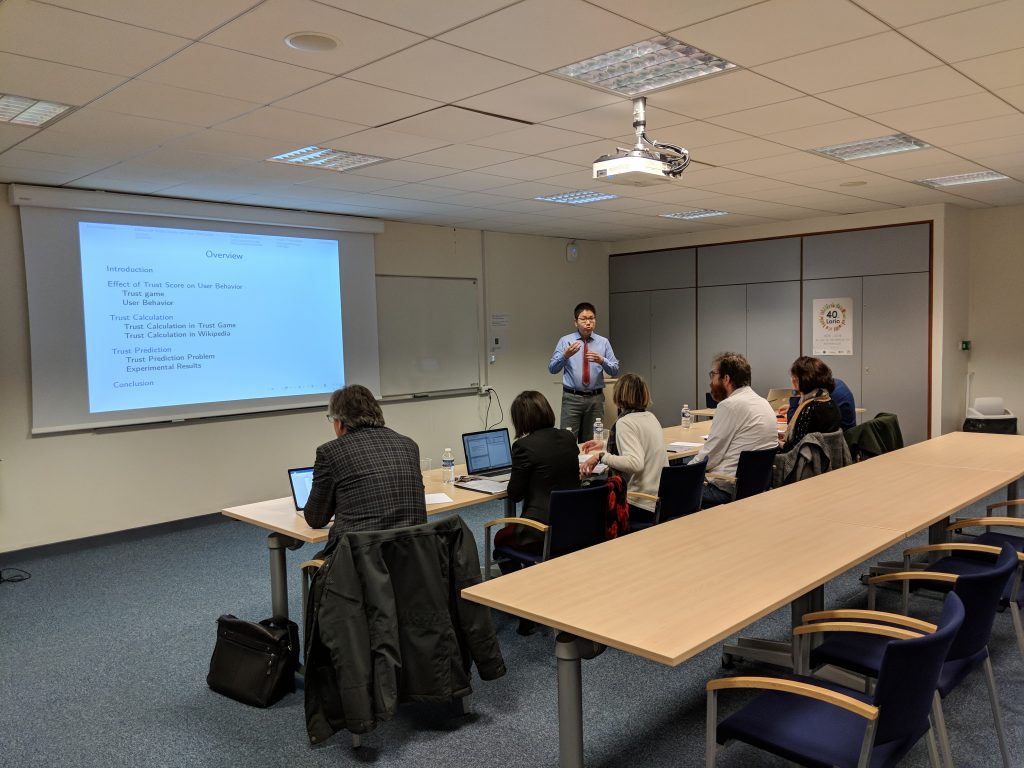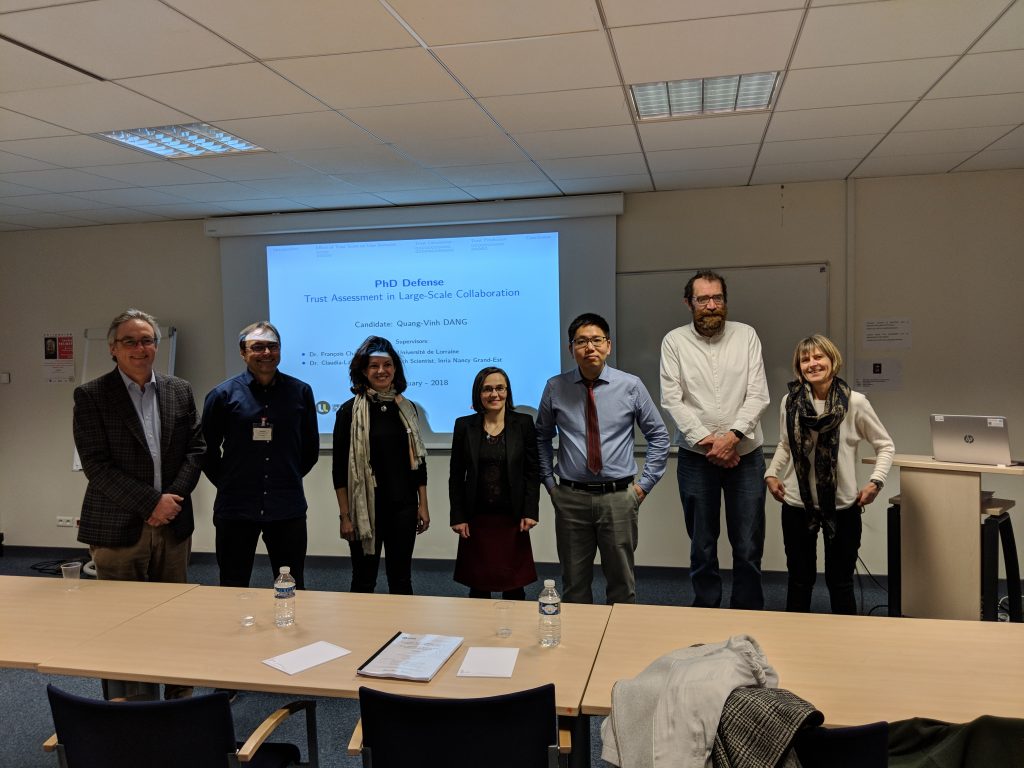Committee:
Rapporteurs :
– Wolfgang Prinz Professeur, RWTH Aachen, Allemagne
– Sihem Amer-Yahia Directeur de Recherche, LIG-CNRS, Grenoble
Examinateurs :
– Isabelle Chrisment Professeur, Université de Lorraine, LORIA
– Lionel Brunie Professeur, Insa Lyon
Directeurs :
– Francois Charoy Professeur, Université de Lorraine, LORIA
– Claudia Ignat Chargée de Recherche, Inria Nancy-Grand Est, LORIA
Abstract:
Large-scale collaborative systems wherein a large number of users collaborate to perform a shared task attract a lot of attention from both academic and industry. Trust is an important factor for the success of a large-scale collaboration. It is difficult for end-users to manually assess the trust level of each partner in this collaboration. We study the trust assessment problem and aim to design a computational trust model for collaborative systems.
We focused on three research questions.
1. What is the effect of deploying a trust model and showing trust scores of partners to users? We designed and organized a user-experiment based on trust game, a well-known money-exchange lab-control protocol, wherein we introduced user trust scores. Our comprehensive analysis on user behavior proved that: (i) showing trust score to users encourages collaboration between them significantly at a similar level with showing nick- name, and (ii) users follow the trust score in decision-making. The results suggest that a trust model can be deployed in collaborative systems to assist users.
2. How to calculate trust score between users that experienced a collaboration? We designed a trust model for repeated trust game that computes user trust scores based on their past behavior. We validated our trust model against: (i) simulated data, (ii) human opinion, and (iii) real-world experimental data. We extended our trust model to Wikipedia based on user contributions to the quality of the edited Wikipedia articles. We proposed three machine learning approaches to assess the quality of Wikipedia articles: the first one based on random forest with manually-designed features while the other two ones based on deep learning methods.
3. How to predict trust relation between users that did not interact in the past? Given a network in which the links represent the trust/distrust relations between users, we aim to predict future relations. We proposed an algorithm that takes into account the established time information of the links in the network to predict future user trust/distrust relationships. Our algorithm outperforms state-of-the-art approaches on real-world signed directed social network datasets.
Keywords: collaboration, trust, game theory, machine learning




